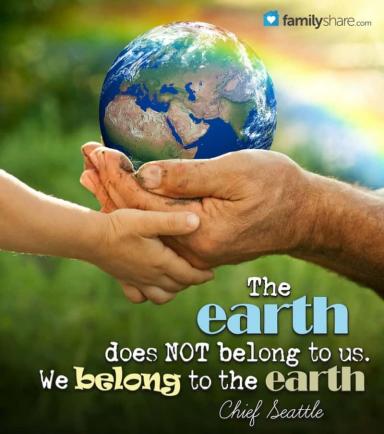
Earth Day may be April 22nd, but taking care of our planet has to happen every day. Your family can do its part to help save Mother Earth by making simple changes to your family routines.
First, have a discussion about what pollution is and its impact on the earth. Web resources to help you include the Environmental Protection Agency (EPA) and the Earth Day Network (EDN). Next, decide as a family what steps you will take to prevent pollution. I've outlined several ways to combat the four most common types of pollution.
Water
. Start by explaining the water cycle. Then discuss ways your family can keep it clean. Older children might be happy to learn it is better to wash your car at a commercial car wash, eliminating a chore.
Household chemicals shouldn't be poured down drains. Instead, take them to local disposal facilities. Better yet, choose organic and safe non-toxic chemicals for home use, both inside and out.
Litter often ends up in streams and rivers, so discard trash in proper receptacles. Remind children of ways to conserve water, and consider installing a rain barrel to use for watering plants.
Air
Most children have a strong sense of smell and are bothered by smoke and air pollution. Talk about how our lungs need healthy air to work properly and how polluted air smells bad and feels bad in our bodies. Families can reduce air pollution by driving their cars less often, never smoking, try to car pool or group errands together, using public transportation or walking and planting and maintaining trees.
Be aware of indoor air pollution when painting and using chemicals. Fumes can be hazardous to young children and some chemicals, when combined, are very dangerous.
Land
Our world is full of stuff. An abundance of products and choices means an abundance of trash as well. One way my family is trying to reduce our impact on landfills is by buying higher quality products less often. The next time your child wants a toy or item, think if you really need it and have a place for it.
Teach your children how to recycle and use your community's system for doing so. Batteries, electronics, household chemicals, etc. should not be thrown in the trash, but disposed of properly. Planning a family service project to pick up trash in your neighborhood will help your children learn to respect their environment.
Noise
One form of pollution that doesn't get discussed as much is noise pollution. Some examples include loud music, car alarms, barking dogs, construction noise and airplanes. Many noises can't be avoided, but teaching your family about noise pollution will help them to be better citizens. You could ask your teenagers not to broadcast their music to the neighborhood as they drive, keep the family dog quiet during sleeping hours and warn your neighbors when you are going to be using power tools or throwing a party.
Other pollutants
There are a few other kinds of pollution, including light (which can disturb animals and their normal patterns), radioactive, thermal and visual (like billboards or graffiti). Although most families won't cause or have to deal with some of these types of pollution, awareness is important to changing perceptions and behaviors.
It is easy to take the earth for granted. Sometimes we forget how beautiful and amazing this planet is. Enlisting your family's help in fighting pollution will make a difference. Start today so we can all enjoy the earth for generations to come.

